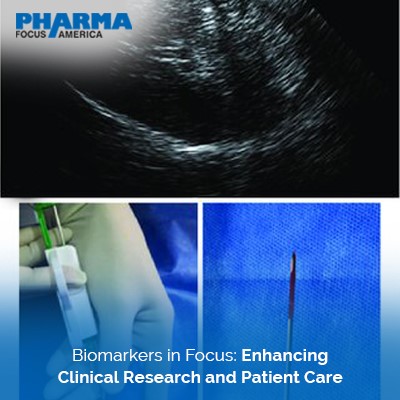
Biomarkers are vital in clinical research and patient care, enabling early diagnosis, personalized treatments, and disease monitoring. This article explores their types, roles in drug development, and applications in oncology and cardiovascular diseases, highlighting the challenges and future prospects in leveraging biomarkers to enhance patient outcomes and healthcare.

Biomarkers, short for biological markers, are measurable indicators of a biological condition or state. They play a crucial role in clinical research and patient care by providing critical insights into disease mechanisms, facilitating early diagnosis, and enabling personalized treatment strategies. This article delves into the multifaceted roles of biomarkers, their applications in clinical research, and how they are revolutionizing patient care.
Definition and Types of Biomarkers
Biomarkers can be classified into several categories based on their application:
Biomarkers play a pivotal role in drug development by:
Oncology
In oncology, biomarkers have transformed the landscape of cancer treatment. For instance, the HER2 protein overexpression is a well-known biomarker in breast cancer, leading to the development of targeted therapies like trastuzumab (Herceptin). Similarly, the presence of BRAF mutations in melanoma has guided the use of BRAF inhibitors, significantly improving patient outcomes.
Cardiovascular Diseases
Cardiovascular research has also benefited from biomarkers. The measurement of troponin levels in blood is a critical diagnostic tool for myocardial infarction. Additionally, biomarkers like NT-proBNP are used to diagnose and manage heart failure, enabling timely and effective interventions.
Personalized Medicine
Biomarkers are at the forefront of personalized medicine, which tailors medical treatment to the individual characteristics of each patient. This approach ensures that patients receive the most effective therapies based on their unique biological makeup.
Genetic Testing
Genetic biomarkers have revolutionized patient care in various fields. For instance, BRCA1 and BRCA2 gene mutations are used to assess the risk of breast and ovarian cancers, guiding preventive measures and treatment strategies.
Pharmacogenomics
Pharmacogenomic biomarkers help predict how patients will respond to medications, allowing for customized drug therapies. For example, the presence of the CYP2C9 and VKORC1 gene variants influences the dosing of warfarin, an anticoagulant, reducing the risk of adverse effects.
Biomarkers are instrumental in the early detection and screening of diseases. For instance, prostate-specific antigen (PSA) levels are used for prostate cancer screening, enabling early diagnosis and treatment. Similarly, fecal occult blood tests (FOBT) and colonoscopy are guided by biomarkers to detect colorectal cancer at an early stage.
Biomarkers enable continuous monitoring of disease progression, helping healthcare providers adjust treatment plans accordingly. For instance, HbA1c levels are monitored in diabetic patients to manage blood glucose levels and prevent complications.
Technical and Analytical Challenges
Despite their potential, the use of biomarkers faces several challenges:
The integration of biomarkers into clinical practice also raises ethical and regulatory issues. For example, genetic testing involves privacy concerns and the potential for genetic discrimination. Regulatory bodies like the FDA and EMA are working to establish guidelines to ensure the safe and effective use of biomarkers.
The future of biomarkers in clinical research and patient care is promising, with several advancements on the horizon:
Biomarkers have become indispensable tools in clinical research and patient care, driving advancements in early diagnosis, personalized treatment, and disease management. While challenges remain, ongoing research and technological innovations hold the promise of unlocking the full potential of biomarkers, ultimately enhancing patient outcomes and transforming healthcare.